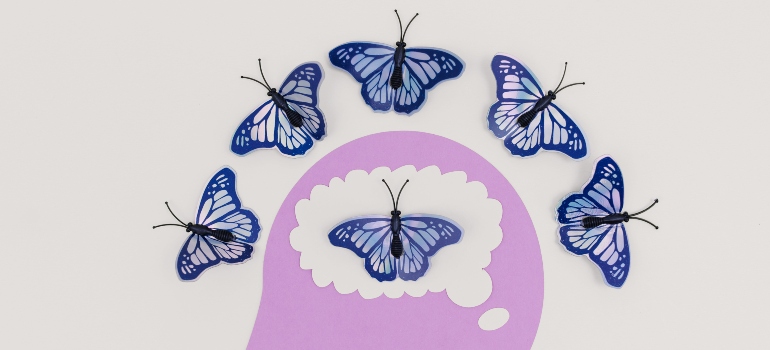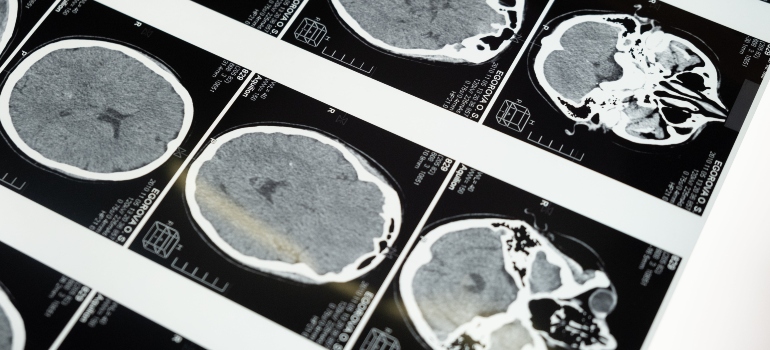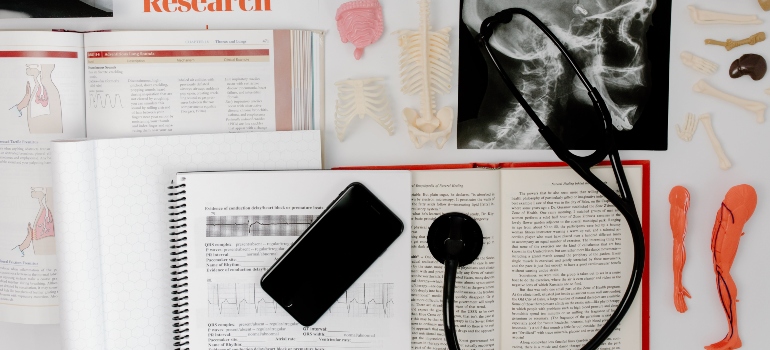TMS, or Transcranial magnetic stimulation, is a new way to fight substance abuse. This method uses magnets to target the brain parts linked to addiction. It’s safe, doesn’t require surgery, and many people looking for a fresh start find it helpful. TMS gives hope, adding to the usual therapy methods practiced at rehab centers in West Virginia. At Harmony Ridge, we understand how hard addiction can be and make sure our treatment plans match what each person needs. TMS for addiction is a big step in treating addiction. It could change how we help people recover, making it easier and more hopeful for those wanting to get better. This approach opens up new chances for healing, helping people take back control of their lives.
What Is TMS for Addiction?
Transcranial Magnetic Stimulation (TMS) is a new therapy for people who haven’t found help from usual treatments like medicine or therapy. It’s not invasive and uses magnets to target the brain areas that control mood. This could help people feel better without the side effects of drugs. Some notice improvements in the first week, but it often takes a few weeks to see big changes. How quickly and well it works depends on factors like age, if other treatments haven’t worked, and if someone is still taking some drugs, such as antidepressants. A lot of people feel much better for a long time after TMS. Research shows that 62.5% of patients were still doing well a year after treatment.

Early signs that TMS is working for you include sleeping well, feeling more motivated, and feeling better overall. About 67% of people with really hard-to-treat depression do well with TMS, and a third of them get better for a long time. But, some may need more treatments later to keep feeling good.
TMS might be worth considering for those in West Virginia looking for new ways to deal with mood problems. It’s a hopeful option for people seeking alternatives, especially for those considering long term drug rehab WV. As we learn more, TMS could play a big role in the future of mental health care.
TMS therapy usually includes 20 to 30 sessions over 4 to 6 weeks. It also combines well with medication assisted treatment in West Virginia.

How TMS Affects the Brain
Transcranial Magnetic Stimulation rewires the brain. Essentially, TMS uses magnetic fields to stimulate nerve cells in the brain. This stimulation can improve symptoms of depression by encouraging the brain to form new connections. Think of it as jump-starting parts of the brain that have been less active. The beauty of TMS lies in its ability to target specific areas. It focuses on the part of the brain involved in mood control and depression.

Over time, these targeted magnetic pulses can lead to changes in brain activity. This is where the “rewiring” comes in. It repeatedly stimulates these areas and encourages the brain to adapt and change. This process is known as neuroplasticity. The brain can reorganize itself by forming new neural connections. Patients often see improvements in their mood, energy, and outlook on life. The therapy is non-invasive and doesn’t require medication, making it an attractive option for many.
While TMS can improve mood and reduce symptoms of depression, there’s no evidence that it changes who you are as a person. Any positive changes in behavior or outlook are usually because of feeling less depressed, which can make life seem better.
What Are the Risks of TMS for Addiction?
Most of the time, TMS side effects are minor, like a headache or feeling dizzy, and they tend to go away after a few treatments. You may also experience scalp discomfort or tingling. A common question is if TMS can cause anger or irritation. Some patients might feel more irritable at the start, but these issues can be managed by adjusting the treatment or talking openly with doctors to make the process smoother.
There’s a rare chance of experiencing a seizure, but it’s very uncommon and similar to the risk with antidepressants. Before starting, patients are checked to lower any risks. For those undergoing substance abuse treatment in WV, TMS can help reduce cravings and support recovery, offering a different path than drug-based treatments. The process involves daily sessions for a few weeks but can lead to lasting improvements.
If you’re already attending individual therapy for addiction or any other form of treatment, talk to your therapist about TMS. They will tell you if this is a good step for your particular situation. They will also know what medical tests to go through to see if you are eligible for this type of treatment.
Who Is TMS Suitable For?
It’s important to understand that TMS for addiction isn’t suitable for everyone. If you have metal in or near your head from medical devices like pacemakers or have a history of seizures, TMS might not be safe for you. It’s also not recommended for people under 18, those with epilepsy, or anyone with serious head injuries due to the risks involved with its electromagnetic currents.
What To Avoid During TMS for Addiction?
When starting TMS therapy, it’s important to create a supportive environment for your brain to heal. Here are key activities to avoid during this time:
- Avoid alcohol: Drinking can affect how your brain responds to TMS. It’s about enhancing TMS effectiveness and overall wellness.
- Limit caffeine intake: Too much caffeine can affect your nervous system and potentially alter TMS outcomes. Try to keep your caffeine consumption moderate.
- Skip certain medications: Some medications can interfere with TMS. Always talk to your doctor about the meds you’re taking to make sure they’re safe during TMS.
- Reduce stress: High stress levels can lower the positive effects of TMS. Look for ways to manage stress through activities like yoga, meditation, or spending time in nature.
Is TMS a Permanent Solution?
Many people ask this as they search for lasting relief. The answer may differ. TMS shows significant promise. However, it’s not a one-time fix. The effects of TMS can be long-lasting for many, but this varies from person to person. Some may need follow-up sessions over time to maintain the benefits. It’s also essential to understand that stopping TMS treatment suddenly isn’t advisable without consulting your healthcare provider. They will guide you on the best course of action based on your progress and needs.
Furthermore, the journey with TMS is personal and requires ongoing evaluation. For some, it brings substantial improvement that feels like a new chance in life. Others may use it as part of a broader treatment plan, including medication or therapy. The key is to have open discussions with your doctor about your treatment goals and how TMS fits into your overall mental health strategy. This approach makes sure you get the most out of TMS therapy.
Does TMS Hurt?
Most people find TMS pretty comfortable. It feels like a light tapping on your head. As mentioned, some people might get mild headaches or feel a bit of discomfort on their scalp when they start treatments, but these side effects are usually short-lived.

If you are experiencing any discomfort during TMS, you can talk to your TMS tech about tweaking the machine settings. Even a little change can help a lot. Also, try to relax and breathe deeply while you’re getting treated.
Be honest with your TMS team about how you’re feeling. They’re there to make things easier for you.
Keep in mind that everyone’s TMS journey is different. Also, a little discomfort may be worth it.
Is TMS for Addiction an Affordable Option?
Many people wonder about the cost when considering this innovative depression treatment. The good news is that TMS is becoming more accessible. Insurance companies are increasingly covering TMS therapy, recognizing its benefits for those battling depression.
It’s crucial to check this with your insurance provider, though. They can tell you if your policy covers TMS for addiction and what your out-of-pocket costs might be. For those without insurance or with plans that don’t cover TMS, some clinics offer payment plans or financial assistance. The price can vary, but investing in your mental health is invaluable.
At Harmony Ridge, we accept most insurance providers and offer different payment plans for our addiction treatment services. We can also help you understand your insurance policy and figure out the best way to make the most of it. Some of the insurance options we accept include:
- Medicaid for rehab services
- BCBS for addiction treatment
- Tricare for rehab
- Humana insurance for rehab
- PEIA insurance for substance abuse therapy
- FMLA for rehab services
Alternatives to TMS for Addiction
For anyone looking for different ways to handle depression, especially if TMS isn’t right for them, there are a few other possibilities, all part of a holistic approach to addiction treatment. Some of the options include:
- Art therapy
- Music therapy
- Mindfulness therapy
- Yoga and physical exercise
These alternatives focus on emotional healing, cognitive restructuring, and fostering a supportive environment for change.
Art Therapy for Addiction
Art therapy rehabilitation is a therapeutic practice that employs creative expression as a medium for healing and emotional exploration. You engage in painting, drawing, sculpting, and other art forms to process feelings, reduce stress, and enhance self-awareness. This approach does not require any artistic skills; rather, it emphasizes the process of creation as a way to explore and express emotions that might be difficult to articulate verbally. Art therapy can help you visualize your experiences and emotions related to addiction, providing a tangible form of expression for complex feelings.

Music Therapy for Addiction
Music therapy involves the use of music—listening, creating, singing, and discussing—to facilitate therapeutic goals and promote emotional well-being. Like art therapy, this modality can help you explore your emotions, improve mood, manage stress, and enhance communication skills. Music therapy sessions might include writing songs, discussing lyrics, or engaging in music improvisation, allowing you to express yourself in a non-verbal way.
Mindfulness Therapy for Addiction
Mindfulness therapy is often integrated within broader therapeutic frameworks such as:
- Cognitive Behavioral Therapy for addiction
- Dialectical Behavior Therapy for addiction
- REBT for addiction
- Group therapy for addiction
- Motivational interviewing
It emphasizes present-moment awareness and acceptance. Through practices like meditation for addiction, breathing exercises, and guided imagery, you learn to observe your thoughts, feelings, and bodily sensations without judgment. This can help reduce cravings, manage stress, and improve emotional regulation, offering a solid foundation for recovery from addiction.
Yoga and Physical Exercise for Addiction
Physical exercise can be a powerful tool in the recovery process, offering both physical and mental benefits. Yoga for addiction recovery combines physical postures, breathwork, and meditation to promote balance, flexibility, strength, and mental clarity. Regular physical activity, whether it’s yoga, walking, running, or team sports, can reduce stress, improve mood, and enhance overall well-being, making it easier to cope with the challenges of recovery.
TMS – A New Way to Fight Addiction
Transcranial Magnetic Stimulation (TMS) represents a promising advancement in the treatment of addiction, offering hope to those for whom traditional therapies have not been effective. This non-invasive technique, which stimulates areas of the brain associated with addiction, has shown potential in reducing cravings and facilitating recovery, especially when combined with comprehensive treatment programs.
The journey to recovery from addiction is deeply personal and often challenging, requiring a multifaceted approach that addresses the physical, emotional, and psychological aspects of the individual. TMS, as part of a broader therapeutic strategy, can play a crucial role in overcoming addiction. However, it is important to remember that the most critical step on this path is reaching out for help.
If you or someone you know is struggling with addiction, we encourage you to contact us. Our team can provide the necessary guidance, resources, and care to navigate the complexities of addiction and embark on the path to recovery. We will discuss TMS for addiction as well as other good options for you specifically. Do not hesitate to seek help; reaching out is the first step toward reclaiming your life and well-being.



